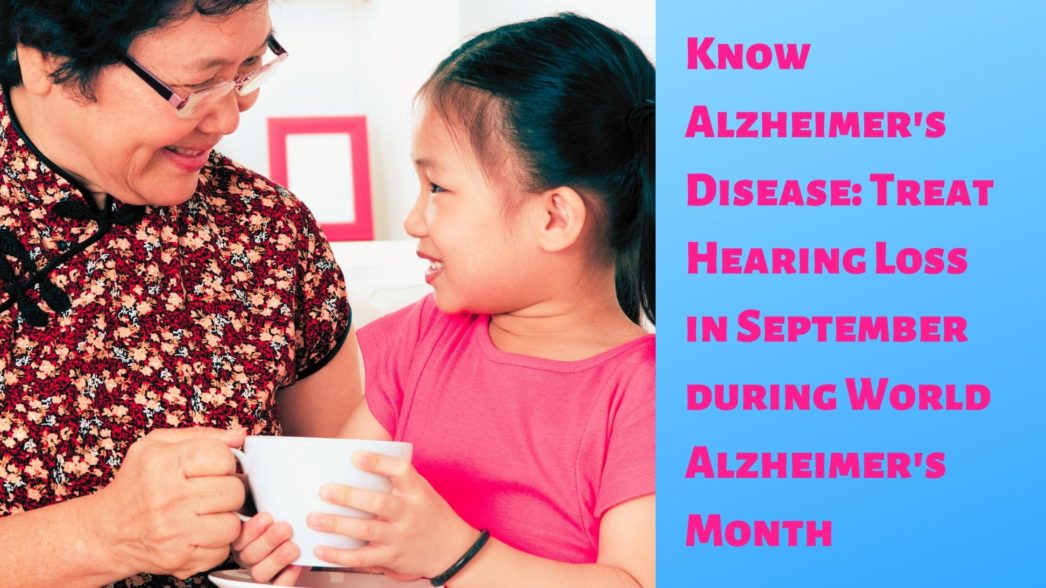Every September is World Alzheimer’s Month, an international campaign led by Alzheimer’s Disease International (ADI) to raise awareness, advocate for prevention and fight the stigma of this devastating degenerative brain disease. This September 21 is World Alzheimer’s Day — What are you planning to do to help combat Alzheimer’s disease?
Understanding the Causes of Alzheimer’s
Alzheimer’s is a neurodegenerative disease in which amyloid plaques and Neurofibrillary tangles gather around the cells of the brain. Neurofibrillary tangles are defined as “abnormal accumulations of a protein called tau that collect inside neurons.” While amyloid plaques are defined as “hard, insoluble accumulations of beta amyloid proteins that clump together between the nerve cells (neurons) in the brains of Alzheimer’s disease patients.” Both anomalies in the brain damage and destroy brain cells over time and impede their ability to communicate with one another. This can lead to different stages of cognitive impairment as the damage progresses.
The Stages of Dementia
Early-stage: can include forgetfulness, losing track of the time and becoming lost in familiar places. These early stages are complicated because this can happen to just about everyone, every now and then.
Middle stage: in this stage people become forgetful of recent events and names and have increased difficulty with communication.
Late-stage: In this final stage an individual becomes nearly completely dependent on 24-hour care. Symptoms include: becoming unaware of the time and place and difficulty recognizing relatives and old friends
Alzheimer’s Prevention
While we are still not completely certain of what causes this disease to form, it is believed that a combination of lifestyle choices may prevent or delay symptoms. Healthy habits may help improve brain health and keep away the development of Alzheimer’s.
Exercise. Studies have shown that 30 minutes of moderately vigorous aerobic exercise, three to four days per week can delay onset of Alzheimer’s.
Eat a Well Balanced Diet. A diet prioritizing fresh vegetables and fruits; whole grains, and lean meats such as fish, nuts and poultry, while avoiding processed foods and sugars can contribute to reducing hypertension, cardiovascular disease, diabetes. These conditions can damage brain cells and are believed to contribute to a higher risk of cognitive impairment
Other preventative measures include getting a good night sleep whenever possible, avoiding stress, learning new things and staying socially connected. These behaviors will eliminate stress on your body and keep your brain sharp and active.
Connecting Hearing Loss and Alzheimer’s
While hearing loss begins in the ears it ultimately affects the brain. This is because when the brain struggles to hear parts of words or sentences due to hearing loss, it causes cognitive fatigue. Social situations which once gave you energy suddenly become draining. Many studies have researched the connection linking untreated hearing loss to diminished cognitive function. Most recently, a study published in July 2021 revealed that who struggle to hear amongst noise over an 11 year period and found they were at a higher risk of developing dementia than those with normal hearing.
A separate study, from Johns Hopkins examined cognitive impairment scores over six years in nearly 2,000 seniors. The participants were cognitively normal at the start of the research but w by the study’s end, people with hearing loss were recorded as being 24 percent more likely to have cognitive “impairment” in comparison with those with no hearing loss.
A separate Johns Hopkins study revealed a link between hearing loss and accelerated brain tissue loss which could lead to dementia. The researchers determined that for seniors with hearing loss, brain tissue loss escalates faster than it does for those with normal hearing.
Treating Hearing Loss to Fight Dementia
Many believe that treating hearing loss with hearing aids could slow cognitive impairment. Hearing aids are tiny electronic devices which fit in or around the ear. They are programmed to amplify only the specific sounds and tones which you cannot comprehend due to hearing loss. Hearing aids make it possible to rejoin the conversation, get out there, stay social, connected, and engaged in the life you love. Even if you don’t think you have a hearing loss, it can’t hurt to have your hearing tested. Many people live years without knowing they have a hearing loss but that doesn’t mean it isn’t already affecting your brain health. Address Alzheimer’s disease risks head on this September by scheduling a hearing test now!


